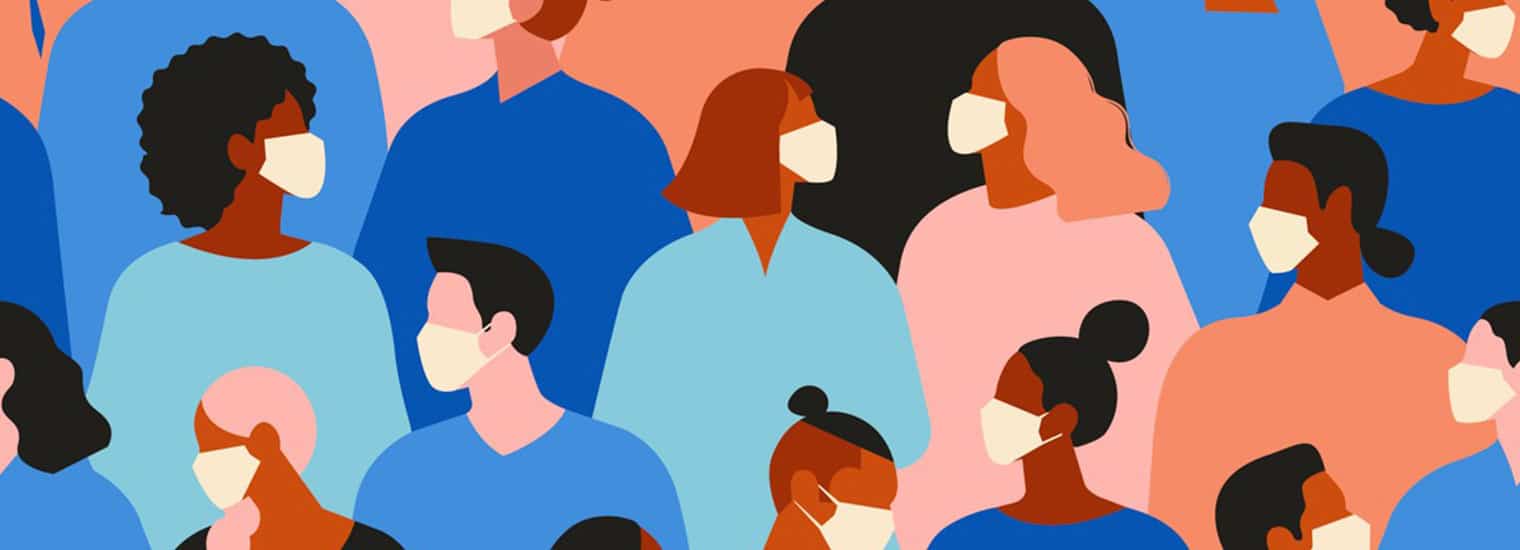Brooks, J. M., Iwanaga, K., Chan, F., Lee, B., Chen, X., Wu, J.-R., Walker, R., & Fortuna, K. L. (2020). Psychometric validation of the Job Satisfaction of Persons with Disabilities Scale in a sample of peer support specialists. Psychiatric Rehabilitation Journal. Advance online publication. https://doi.org/10.1037/prj0000411
Campbell, V. A., Gilyard, J. A., Sinclair, L., Sternberg, T., & Kailes, J. I. (2009). Preparing for and responding to pandemic influenza: Implications for people with disabilities. American Journal of Public Health, 99, S294-S300, https://doi.org/10.2105/AJPH.2009.162677
Galea, S., Merchant, R. M., Lurie N. (2020). The mental health consequences of COVID-19 and physical distancing: The need for prevention and early intervention. JAMA Intern Med. Published online April 10, 2020. https://doi.org/10.1001/jamainternmed.2020.1562
Goldmann, E., & Galea, S. (2014). Mental health consequences of disasters, Annual Review of Public Health, 35, 169-183 https://doi.org/10.1146/annurev-publhealth-032013-182435
Lai, J., Ma, S., Wang, Y, et al. (2020). Factors associated with mental health outcomes among health care workers exposed to coronavirus disease 2019. JAMA Network Open. 3(3):e203976. doi:10.1001/jamanetworkopen.2020.3976 https://jamanetwork.com/journals/jamanetworkopen/fullarticle/2763229
National Academies of Science, Engineering, and Medicine. (2020). Social isolation and loneliness in older adults: Opportunities for the health care system. Washington, DC: National Academies Press. https://doi.org/10.17226/25663
O’Sullivan, T., & Bourgoin, M. (2010). Vulnerability in an influenza pandemic: Looking beyond medical risk. White Paper funded by Public Health Agency of Canada https://pdfs.semanticscholar.org/3fea/b020bbd580beee0ae83a05f2945286f61e2e.pdf?_ga=2.32448446.1610832451.1588091465-2065395916.1588091465
Priestley, M., & Hemingway, L. (2007) Disability and disaster recovery, Journal of Social Work in Disability & Rehabilitation, 5:3-4, 23-42, DOI: 10.1300/J198v05n03_02
Qi, F., Qian, S., Zhang, S., & Zhang, Z. (2020) Single cell RNA sequencing of 13 human tissues identify cell types and receptors of human coronaviruses. Biochemical and Biophysical Research Communications. DOI: 10.1101/2020.02.16.951913 [published ahead of print]
Wang W, Xu Y, Gao R, et al. (2020). Detection of SARS-CoV-2 in different types of clinical specimens. JAMA. Published online March 11, 2020. doi:10.1001/jama.2020.3786
